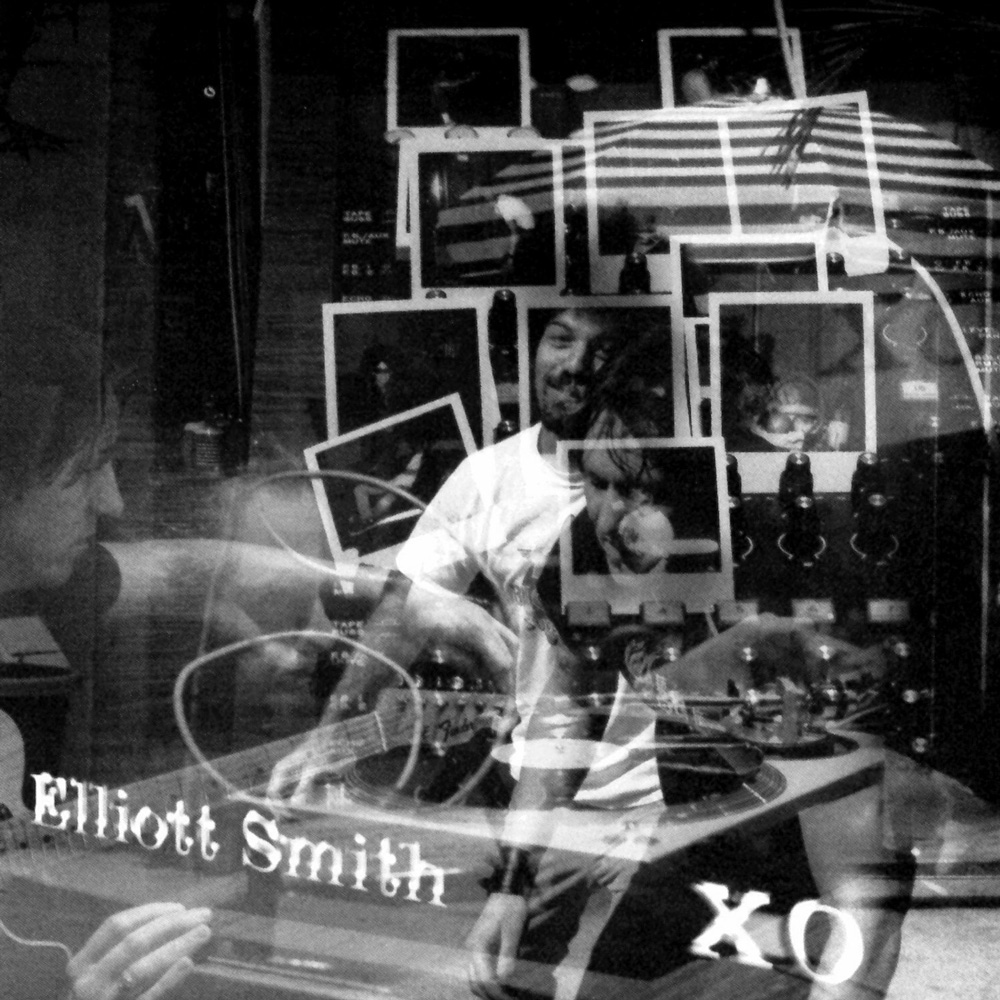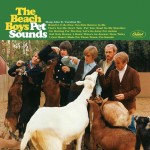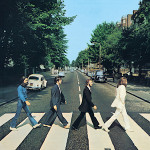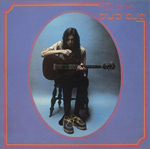Elliott Smith : XO

The sound of an acoustic guitar playing solitary notes, followed by a few strums, then accompanied by a dulcet voice is nothing new for an Elliott Smith record. It’s after a minute and a half into the opening track of XO, “Sweet Adeline,” that those who were already fans of Elliott did a double take. True, Smith had starting using other instruments in previous albums, and had a much fuller sound when he recorded “Miss Misery” for Good Will Hunting, but this was still a leap. This was Dylan recording Highway 61 Revisited, or Jeff Buckley going from the one guitar and little amp of the Sin-É to the grandiose production work of Grace. In other words, it’s not what we expected, and given time, we would all love it.
Smith’s previous music had echoed some of John Lennon’s and George Harrison’s Beatles work. XO further cemented the `Beatlesesque’ tag, but propelled it into a more McCartney sounding direction. Elliott would, in fact, later record a beautiful version of “Because” for the film American Beauty. While “Sweet Adeline” acted as a bridge between former indie albums and this major label debut, linking the acoustic with the electric, the sparse with the fully arranged, and the Adelines with the Clementines (Elliott Smith), and “Tomorrow Tomorrow” would be a further extension of songs on both Good Will Hunting and either/or, “Waltz #2 (XO)” would be the song that would mark the real beginning of Elliott’s progression as a musician.
Set in actual 3/4 waltz time, “Waltz #2 (XO)” showcases Smith’s ability of arranging, poetic lyricism, and pop sensibility. It’s no mistake that he references both “Cathy’s Clown” and “You’re No Good,” two pop classics. The song features one of the now most often referenced lines in Elliott Smith’s oeuvre, “I’m never gonna know you know, but I’m gonna love you anyhow.” Fans have turned this line around on Smith, the artist they all felt a kinship to through his lyrics and now will never have the chance to know better, through music or any other method. Although the rhythm of the track is jaunty and upbeat, the lyrics now belie something darker:
“XO, mom
It’s okay, it’s alright, nothing’s wrong”
“Baby Britain” continues with the juxtaposition of upbeat music with downbeat words and again references a pop history past with a subtle nod to Revolver: “Revolver’s been turned over,” and “Crimson and Clover”. The jangly guitar accompanied by the piano is more reminiscent of the Beatles than almost anything else on the album. But Smith writes of someone who alienates himself from everyone else, and at times hints of suicide, but then avers, “nothing’s gonna drag me down to a death that’s not worth cheating.”
It’s the next song that truly tears me apart. For me, it is Elliott Smith’s shining moment, his finest piece of songwriting that could never be matched. “Pitseleh” has a simple enough premise, that of an explanation of a breakup, a ‘Dear Jane’ letter, if you will. But it’s the way that Smith tells it, the words he selects, and the manner in which he delivers it that are truly heartbreaking and magical. The first two lines are simple brilliance:
“I’ll tell you why I don’t want to know where you are
I got a joke I been dying to tell you”
For those who have been in a directionless, harmful, or doomed relationship, you know exactly what this means. It’s an excuse for finding a way back to that person who you were bad for, or who was bad for you. Sometimes it’s better to leave well enough alone. Then Smith writes lyrics in the middle of the song that trump each other with each progressive line. It starts with two lines that could stand strongly on their own:
“They say that God makes problems
Just to see what you can stand”
But then he follows that up with “before you do as the devil pleases / and give up the thing you love.” Just when you think that’s the end of that, he takes it one step further saying, “No one deserves it.” The song has been known to make me weep on more than one occasion. For the record, ‘Pitseleh’ is Yiddish for ‘little one’.
“Independence Day” is one of the more hopeful songs on the album. It revolves around the story of the butterfly, once cocooned and then soaring high, free, and independent. Smith says of himself, “it’s gonna happen soon but not today.” “Bled White” is a song about his adopted hometown of Portland, Oregon, referring to “Rose City on the 409.” “Waltz #1”, of course again in actual waltz time, has some help from great musician and producer Jon Brion, and it shows. Brion has helped the likes of Aimee Mann, Michael Penn, and Fiona Apple with their albums and also had some of his own songs featured in soundtracks such as Punch Drunk Love.
“Amity” is definitely a George Harrison-esque song if I’ve ever heard one. Smith’s guitar mimics that of the quiet one, with the song hearkening back to “While My Guitar Gently Weeps” and other Harrison penned Beatles tracks. “Bottle Up and Explode!” is another standout track from the album, featuring a few guests and a weeping string section. One of the singular moments in the song is the lush instrumental solo / bridge. It proved to Elliott’s fans that he could remain emotionally grounded and honest while employing a richer sound. In essence, he proves that a major label and glossy production couldn’t spoil him.
After “Pitseleh,” although sometimes trading places with it, the saddest song on the album is the last, “I Didn’t Understand”. Featuring just Elliott’s overlapped vocals, the song is a Brian Wilson-esque masterpiece. Again, like “Pitseleh,” it’s a simple relationship song, or rather, a broken relationship song, one in which Smith degrades himself calling himself a `joke’ and merely a `cloud of smoke’. He declares that he is supposed to be alone `tonight, tomorrow, and everyday.’ But amazingly, it does not sound whiny in the slightest. Elliott’s beautiful harmonies weave in and out of each other, creating no need for actual instrumentation. The fragility and airiness of his own voice is enough to fill the space and tear at the heart. I’m sorry that I missed Jenny Lewis’ take on this song at a tribute to Elliott, but I’m sure I would have just lost it completely.
XO found Elliott Smith signing with a major label, and it doesn’t get much more major than Dreamworks, which left fans wondering whether his indie cred, emotional music, and unique style would remain intact. While his producers and collaborators helped Smith to create a fuller sound, more instrumentation, and a little experimentation, Elliott never really veered from his talent’s path. His lyrics were still heartbreakingly tender and true, his guitar still weepy and subtle. Some of the songs on XO are easily some of his best. As time proved Dylan’s Highway 61 Revisited a must have classic, and the same has held true for Jeff Buckley’s Grace, time will surely smile upon XO and prove it to be an indispensable part of any music collection.
Label: Dreamworks
Year: 1998
Buy this album at Turntable Lab
Similar Albums:
 Beach Boys – Pet Sounds
Beach Boys – Pet Sounds
 The Beatles – Abbey Road
The Beatles – Abbey Road
 Nick Drake – Bryter Later
Nick Drake – Bryter Later
Support our site: Buy this album at Turntable Lab

